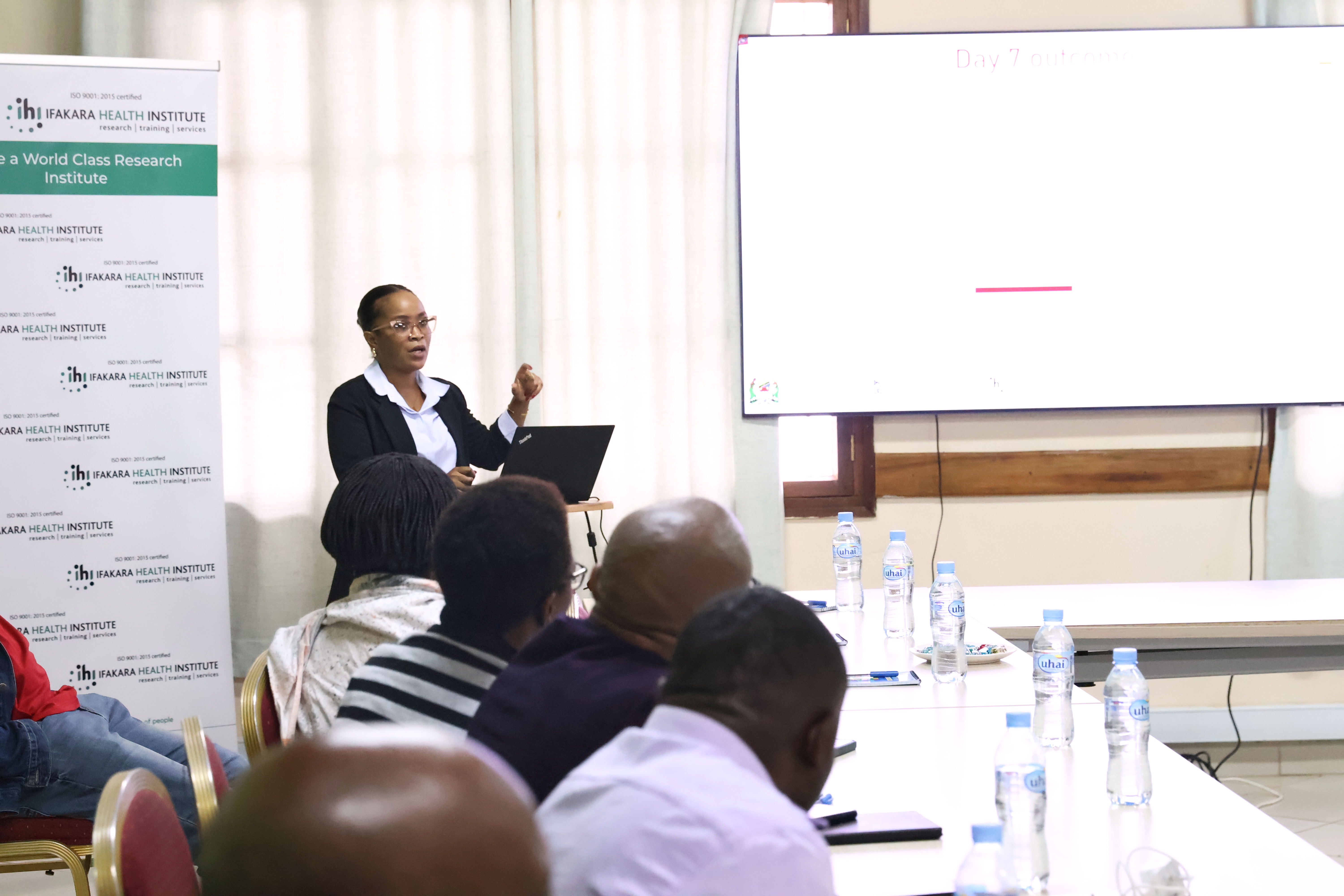
DISSEMINATION: Stakeholders discuss ways to advance digital healthcare in Tanzania

On 17 April 2024, scientists from the Ifakara Health Institute convened with representatives from Community Health Management Teams (CHMT) from various districts in Morogoro, including Mlimba District Council, Ifakara Town Council, and Ulanga District Council, to review the findings of the DYNAMIC study.
The DYNAMIC study focuses on the use of the Digital Clinical Decision Algorithm to reduce antibiotic prescriptions and improve the quality of care in primary health facilities in Tanzania. It has been implemented by Ifakara and partners since 2020 and seeks to promote the adoption of digital tools, particularly in low-resource settings, for the benefit of Tanzanians.
Addressing challenges, successes
The meeting addressed both challenges and achievements encountered during the study's implementation. Presenters, including Ifakara scientists Geofrey Ashery, Margreth Madauda, and Ibrahim Mtebene, underscored the possibility of utilizing digital clinical decision algorithms in primary healthcare settings. They also emphasized the need for integrating the tools on the health care workers' desks, aligning with President Samia Suluhu Hassan's directive on digital tool adoption.
Plans for ownership, adaptation of tools
Following the presentations, the attendees discussed the stakeholders’ role in the ownership and adaptation of such tools at the district level, including the Office of the District Medical Officers (DMOs), Regional Medical Officers (RMOs), CHMTs, and Health Care Workers (HCWs) and the local communities in different areas as the pinnacle to adapting such tools as part and parcel of life in Digital Health.
The DYNAMIC project has other subcomponents such as the disease surveillance project which helps detect the emergence of epidemic diseases. It was stressed at the meeting that it is important to keep the surveillance department in the district in the loop so that the government has near to real-time data on the different areas.
Collaboration for sustainable impact
Sharing their feedback, the attendees expressed gratitude for how they were involved during the study and emphasized the importance of continued engagement in monitoring activities to ensure project ownership.
Additionally, they expressed the need to keep the various resources such as the hemoglobin machine, routers and tablets which are helpful to reduce the cost incurred by the health facilities in the installation of such devices and helpful for further use. They also expressed the need for collaboration on the use of such tools as routers with the existing systems such as the GOTHOMIS in the facilities.
For their part, Ifakara scientists acknowledged the input from CHMT representatives and emphasized sustained collaboration between researchers and stakeholders. The meeting underscored the significance of investing in healthcare and working together to improve health outcomes in Tanzania.
Accordingly, following these discussions, the DYNAMIC study aims to enhance the integration of clinical data recording tools closing existing gaps in clinical skills and training.
